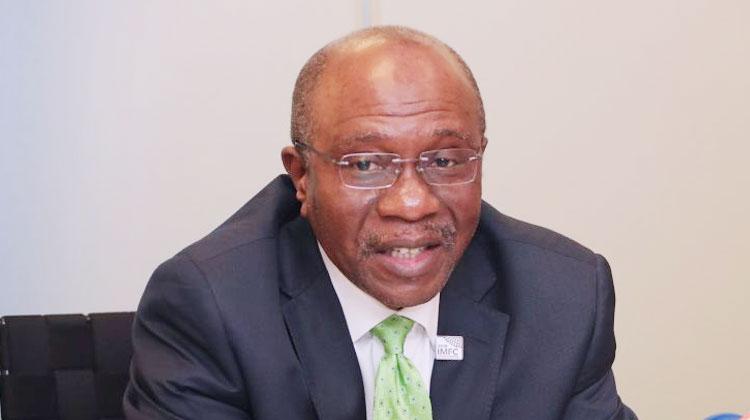
By Eric Teniola
I ATTENDED an event recently in Lagos and Chief Joseph Oladele Sanusi (84) from Ogbagi in Akoko North West Local Government of Ondo State, entered quietly, unannounced. The master of ceremony at the event did not even recognise him. I had to tell a friend of mine who sat next to me that, that is the eighth governor of the Central Bank of Nigeria, CBN. My friend then asked me: “Was he governor under the military?” And I replied negative, but added that he was the Central Bank governor between 1999 and 2004 under President Olusegun Obasanjo. By the way, Ogbagi is home to other prominent people including Chief Jibola Aribisala, SAN; Dr. Olu Ibukun, retired UN Diplomat; Professor Soji Adesugba, current Managing Director of Nigeria Export Processing Zones Authority, NEPZA, a parastatal under the Federal Ministry of Trade and Investment; and others too numerous to mention.
Chief Joseph Sanusi attended the United School, Ogbagi-Irun from 1944-1950; Jubilee Central School, Ikare, 1951. His classmates then were the late Owa Ale of Ikare, Sir S.K. Adedoyin(1924-2021), the late Akoko leader, Chief Felix Idowu Ayegbusi(1935-2018) and the present Olukare of Ikare, Oba Saliu Akadiri Momoh (89). He later proceeded to St. John’s College, Owo, 1953-1954; St Peter’s College, Kaduna, 1957-1958; South West London College, England, 1961-1966. He joined the Central Bank of Nigeria in 1966 as an account manager, later assistant chief internal auditor, deputy chief of banking operations, departmental director; executive director, Nigerian Securities and Exchange Commission, Central Bank of Nigeria; later Chairman, First Bank of Nigeria; appointed deputy governor, CBN, 1988; associate, Corporation of Chartered Accountants; and fellow, Institute of Chartered Accountants.
When Obasanjo became the President on May 29, 1999, he appointed Chief Sanusi as the Governor of the Central Bank of Nigeria. President Obasanjo made the appointment over his Egba- born close friend, Chief Oluwole Alani Adeosun (1938-2012), former Managing Director of NAL Merchant Bank, also Managing Director of First Bank of Nigeria, who also served as the Minister of Transport in the Interim Transitional Government headed by Chief Ernest Adegunle Oladeinde Shonekan(May 9, 1936 – January 11, 2022). The CBN is the apex monetary authority of Nigeria established by the CBN Act of 1958 and commenced operations on July 1, 1959.
The major regulatory objectives of the bank as stated in the CBN Act are to: maintain the external reserves of the country, promote monetary stability and a sound financial environment, and act as a banker of last resort and financial adviser to the Federal Government. The central bank’s role as lender of last resort and adviser to the Federal Government has sometimes pushed it into murky regulatory waters. After the end of British imperial rule the desire of the government to become pro-active in the development of the economy became visible, especially after the end of the Nigerian civil war, the bank followed the government’s desire and took a determined effort to supplement any show shortfalls, credit allocations to the real sector. The bank became involved in lending directly to consumers, contravening its original intention to work through commercial banks in activities involving consumer lending.
During the tenure of Chief Sanusi as Governor of Central Bank of Nigeria, he encouraged collaboration with his deputy governors —Mr Oluwole S. Oduyemi, Alhaji Mahey R. Rasheed, Mrs. Wahir Msheila, Dr. Shamsudeen Usman and Mr. Ernest C. Ebi. He never acted like an alpha and omega. He quickly introduced foreign exchange controls in an effort to reduce the drain on foreign reserves which had fallen from over $7 billion to under $4 billion in the last two years, during the tenure of the then Head of State, General Sani Abacha(September 20, 1943 – June 9, 1998) and General Abdusalam Abubakar (80) and to defend the naira. Oil revenues, the primary source of foreign exchange, had dropped below the level needed to cover basic requirements. The business community was hostile to the efforts to prop up the currency, believing that devaluation coupled with exchange market reform was necessary. On Saturday, May 29, 2004, Chief Sanusi’s tenure as the governor of Central Bank of Nigeria was to end. His term was qualified for a renewal. Few weeks before that date, he had an audience with President Obasanjo in The Villa during which he told the President emphatically that he would not serve another term.
He elaborated to the President that he would want to spend more time with his wife, Adunke Sanusi alias MAMA TOYIN, who is from Imesi Ile in Obokun Local Government Area of Osun State. Chief Sanusi tendered his resignation to President Obasanjo, who said he was shocked by Chief Sanusi’s decision.
To be continued…
Disclaimer
Comments expressed here do not reflect the opinions of Vanguard newspapers or any employee thereof.